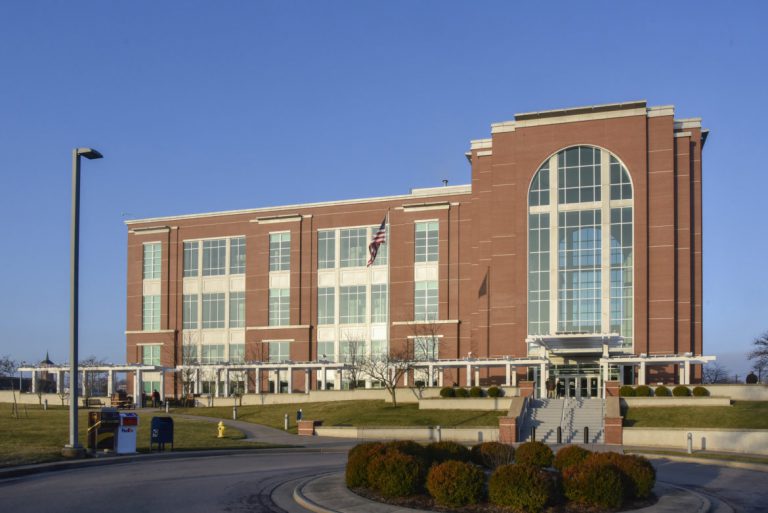CAPE GIRARDEAU, Mo. – Closing arguments are set for 9 a.m. Friday in the federal trial of a lawsuit alleging Monsanto and BASF intentionally caused widespread damage to farms in order to bolster sales of a new pesticide and seed system.
Bader Farms, the largest peach farm in Missouri, alleges that the companies, through the release of the new products built around the pesticide dicamba, are responsible for irreparable damage to its 1,000 acres of peach trees. Bayer, which bought Monsanto in 2018, and BASF deny the allegations that dicamba is volatile when used correctly. The companies blame the issues at Bader Farms on other issues, including soil fungus and weather events.
The cropping system, designed to help farmers kill weeds that are increasingly resistant to the pesticide glyphosate, was hailed as the next generation of farming. Monsanto genetically engineered cotton and soybean seeds to withstand being sprayed by dicamba, an effective but volatile weed killer, and both companies released new versions of dicamba touted as being less likely to drift off-target.
Bader Farms, which is suing for $20.9 million in damages, is one of thousands of farms that has alleged damage from dicamba since the products were released beginning in 2015.
On Friday, Judge Stephen Limbaugh Jr. will read jury instructions, then Bader Farms will get an hour for a closing argument. Lawyers on behalf of Bayer and BASF will have 80 minutes to split between them. Limbaugh said he expects the jury to get the case around noon.
Thursday will be a work day for Limbaugh and attorneys.
On Wednesday, BASF rested its case, which focused on establishing that Monsanto is a “fierce” competitor, rather than a collaborator on the system.
Dr. Guido Schnabel, a plant pathology professor at Clemson University retained by BASF, testified Wednesday that armillaria root rot, a fungal disease, and planting issues were causing tree death on Bader Farms. Schanbel said the fungal disease was causing issues prior to 2015, according to a review of satellite images of orchards that were replanted.
“It’s a big issue. As new fields aged, you can see the pattern reemerging,” Schnabel said.
In cross-examination, Schnabel said he has never seen a peach tree damaged by dicamba and is not a herbicide specialist. He also said the fungal disease has been in the soil for thousands of years.
On Monday, Monsanto took one day to present its defense, which also focused on fungal diseases and a lack of evidence of dicamba at Bader Farms.
In two weeks of presenting their case, lawyers on behalf of Bader Farms introduced evidence that showed both Monsanto and BASF knew many farmers would likely illegally spray older versions of dicamba in 2015 and 2016. Evidence also showed that both companies expected thousands of complaints about their new weed killers when they were launched in 2017.
The Midwest Center for Investigative Reporting is a nonprofit, online newsroom offering investigative and enterprise coverage of agribusiness, Big Ag and related issues through data analysis, visualizations, in-depth reports and interactive web tools. Visit us online at www.investigatemidwest.org.

